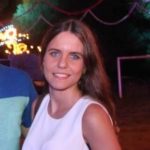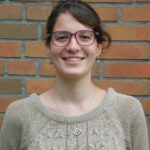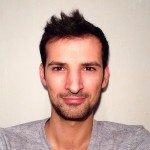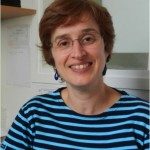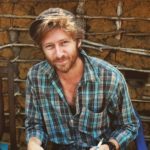Ana Catarina Martins graduated in Biochemistry from the University of Minho in 2015 and holds a MSc in Applied Biochemistry, with a specialization in biomedicine, from the University of Minho. Currently, she is a PhD student from Instituto de Ciências Abel Salazar, University of Porto (ICBAS, FCUP) at the Immune Regulation Group at i3S, supervised by Dr. Margarida Saraiva, with the support of a FCT PhD fellowship. Her PhD is dedicated to the study of in vivo roles of IL-10 under therapeutic settings. As a result of her contributions to the field, she co-authors a study regarding the mechanisms of the immune regulation elicited my IL-10 in the context of intestinal inflammation (Cardoso A. et al., Frontiers in Immunology, 2018) and, more recently, she first co-authors a study that is now published in Cell Reports (2021), on how IL-10 promotes emergency hematopoiesis. She has presented her studies in oral or poster format in national and international conferences. She has participated in several outreach activities, namely in the celebration of the International Immunology Day at i3S, and has been a volunteer to the COVID-19 task force at the institute.
Former Teams
CV
-
 Bioinformatics and Biostatistics HUBMarie-Agnès Dillies
Bioinformatics and Biostatistics HUBMarie-Agnès Dillies -
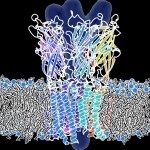 Architecture and Dynamics of Biological MacromoleculesMarc Delarue
Architecture and Dynamics of Biological MacromoleculesMarc Delarue -
 Evolutionary Biology of the Microbial CellSimonetta Gribaldo
Evolutionary Biology of the Microbial CellSimonetta Gribaldo -
 Biology of Host-parasite InteractionsArtur Scherf
Biology of Host-parasite InteractionsArtur Scherf -
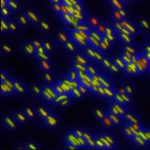 Microbial Individuality and InfectionGiulia Manina
Microbial Individuality and InfectionGiulia Manina -
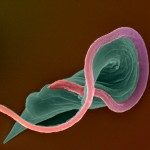 Trypanosome Molecular BiologyLucy Glover
Trypanosome Molecular BiologyLucy Glover
-
“Modelling and functional analysis of clonal Evolution in Leishmania – possible role of non-coding RNAs and RNA modification”Gérald Spaeth
-
 LeiSHield – A new collaborative action to determine prevalence, anticipate emergence and assess urbanization of cutaneous and visceral leishmaniasis in LeishRIIP partner countriesGérald Spaeth
LeiSHield – A new collaborative action to determine prevalence, anticipate emergence and assess urbanization of cutaneous and visceral leishmaniasis in LeishRIIP partner countriesGérald Spaeth -
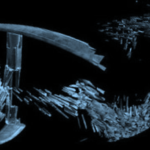 MECHANISMS OF DNA RECOMBINATIONLudovic Deriano
MECHANISMS OF DNA RECOMBINATIONLudovic Deriano -
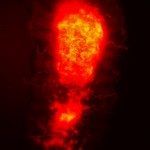 VeCoInfChristian Mitri
VeCoInfChristian Mitri -
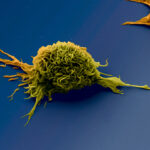 Vaccines coopting dendritic cells to achieve local immunity against respiratory infections.Pierre Guermonprez
Vaccines coopting dendritic cells to achieve local immunity against respiratory infections.Pierre Guermonprez -
 Whole genome sequencing and artificial intelligence to characterise and diagnose antibiotic resistance and capacity to escape treatment: Seq2DiagPhilippe Glaser
Whole genome sequencing and artificial intelligence to characterise and diagnose antibiotic resistance and capacity to escape treatment: Seq2DiagPhilippe Glaser
